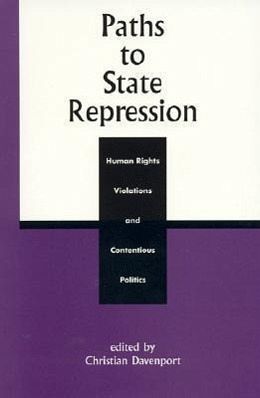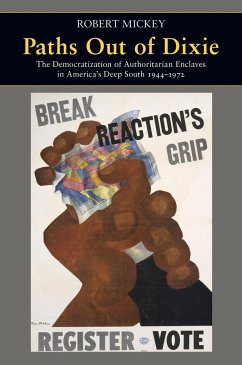
Paths to State Repression
Human Rights Violations and Contentious Politics
Herausgeber: Davenport, Christian

PAYBACK Punkte
73 °P sammeln!
In the last ten years, there has been a resurgence of interest in repression and violence within states. Paths to State Repression improves our understanding of why states use political repression, highlighting its relationship to dissent and mass protest. The authors draw upon a wide variety of political-economic contexts, methodological approaches, and geographic locales, including Cuba, Nicaragua, Peru, Sri Lanka, Indonesia, Israel, Eastern Europe, and Africa.













